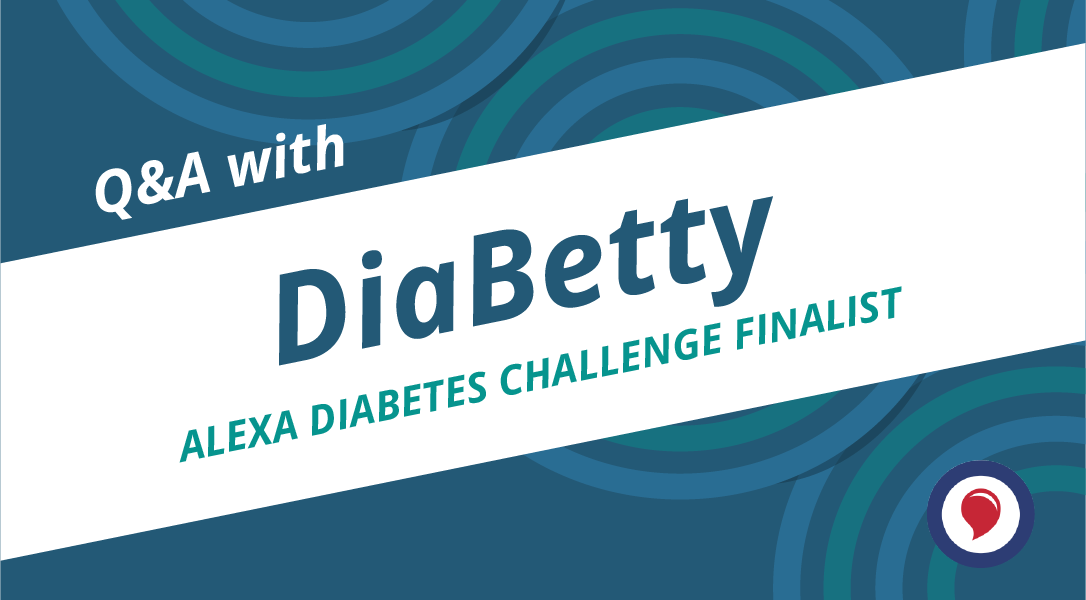
This is the first post in our “5 Teams Changing Diabetes Management” series, featuring Q&A with the Alexa Diabetes Challenge Finalists. These concepts demonstrate the vast potential for voice-enabled solutions to improve life for those with type 2 diabetes.
Our first post features a Q&A with Olu Ajilore, Co-Director, Adult/Neuroscience Research Track at University of Illinois at Chicago. His team developed DiaBetty, a virtual diabetes educator and at-home coach that is sensitive and responsive to the patient’s mood, enhancing patient skills for self-management.
What is the biggest insight you uncovered at Innovators’ Boot Camp?
Our biggest insight is that the way people engage with type 2 diabetes is very heterogeneous. Everybody has a different approach to their diabetes management. Everyone has a different way they like to be encouraged to stay on their diet, keep exercising, take their medications, etc. Therefore, while a “one size fits all” solution is unlikely to address the specific needs of even a single actual patient, a context-sensitive skill that is responsive to subtle cues like mood and incorporates machine learning models to better meet the user where they are, has much greater potential.
How do you see your solution evolving over the next year?
We hope that DiaBetty will develop several capabilities to create tailored experiences for patients that are customized to their mood and social context. DiaBetty will become more adaptable and flexible the more she is invoked, as well as be able to incorporate connected health devices, if present, while still providing comparable functionality to users who do not have such devices available. DiaBetty will also become a more effective care coordinator as she learns more about the user and gains deeper integration into EHR systems as well as buy-in from the care team.
Thinking ahead, how do see your solution expanding beyond the U.S. market, and supporting patients around the world?
The diffusion rate of new technologies like voice varies around the world, even as developing nations often leapfrog ahead by skipping intermediary steps and adopting emerging technologies, other regions lag. As more countries transition from smartphone-only to voice and connected devices, adopt EHRs and other health technology, and engineer ever more inventive and efficient solutions out of necessity, DiaBetty will continue to support voice platforms like Alexa as well as intelligent assistants built on Lex and comparable services, whether they run on a homebrewed Raspberry Pi device, an old desktop computer, or a communal smartphone shared by a family of four. DiaBetty learns individuals’ preferences and can infer sociocultural context so as to facilitate culturally competent care. As Alexa and Lex add to the number of languages they support, DiaBetty’s own mood sensing models will improve so that she can be sensitive to the linguistic nuances of every language.
